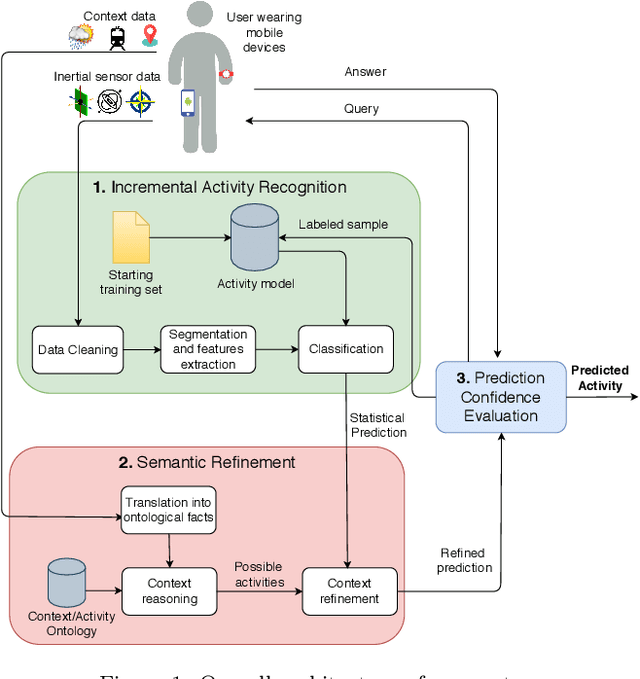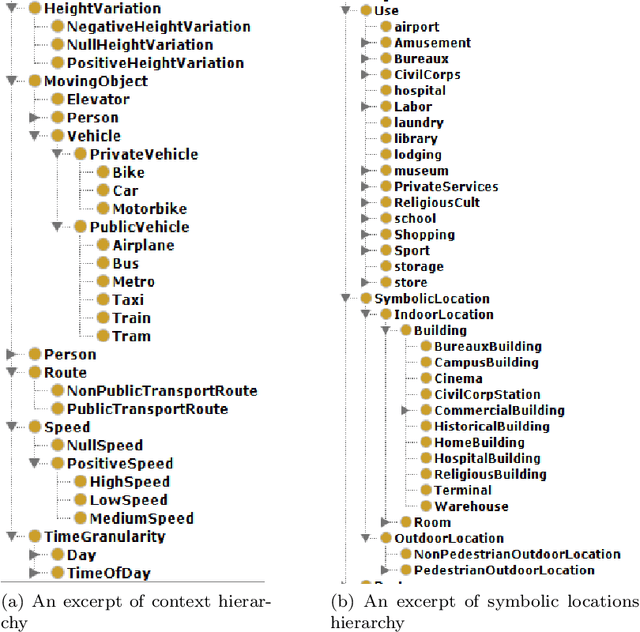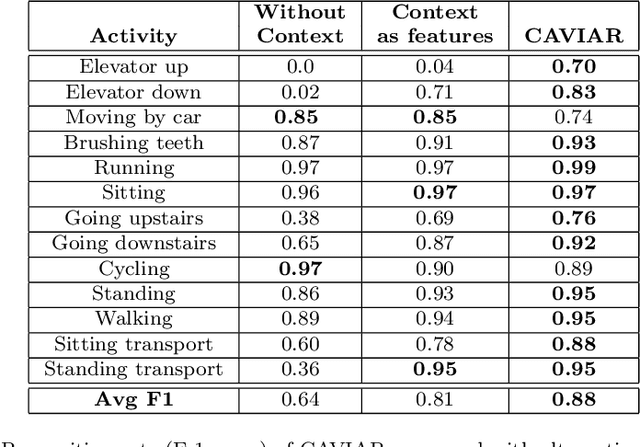Context-driven Active and Incremental Activity Recognition
Paper and Code
Jun 07, 2019



Human activity recognition based on mobile device sensor data has been an active research area in mobile and pervasive computing for several years. While the majority of the proposed techniques are based on supervised learning, semi-supervised approaches are being considered to significantly reduce the size of the training set required to initialize the recognition model. These approaches usually apply self-training or active learning to incrementally refine the model, but their effectiveness seems to be limited to a restricted set of physical activities. We claim that the context which surrounds the user (e.g., semantic location, proximity to transportation routes, time of the day) combined with common knowledge about the relationship between this context and human activities could be effective in significantly increasing the set of recognized activities including those that are difficult to discriminate only considering inertial sensors, and the ones that are highly context-dependent. In this paper, we propose CAVIAR, a novel hybrid semi-supervised and knowledge-based system for real-time activity recognition. Our method applies semantic reasoning to context data to refine the prediction of a semi-supervised classifier. The context-refined predictions are used as new labeled samples to update the classifier combining self-training and active learning techniques. Results on a real dataset obtained from 26 subjects show the effectiveness of the context-aware approach both on the recognition rates and on the number of queries to the subjects generated by the active learning module. In order to evaluate the impact of context reasoning, we also compare CAVIAR with a purely statistical version, considering features computed on context data as part of the machine learning process.
 Add to Chrome
Add to Chrome Add to Firefox
Add to Firefox Add to Edge
Add to Edge